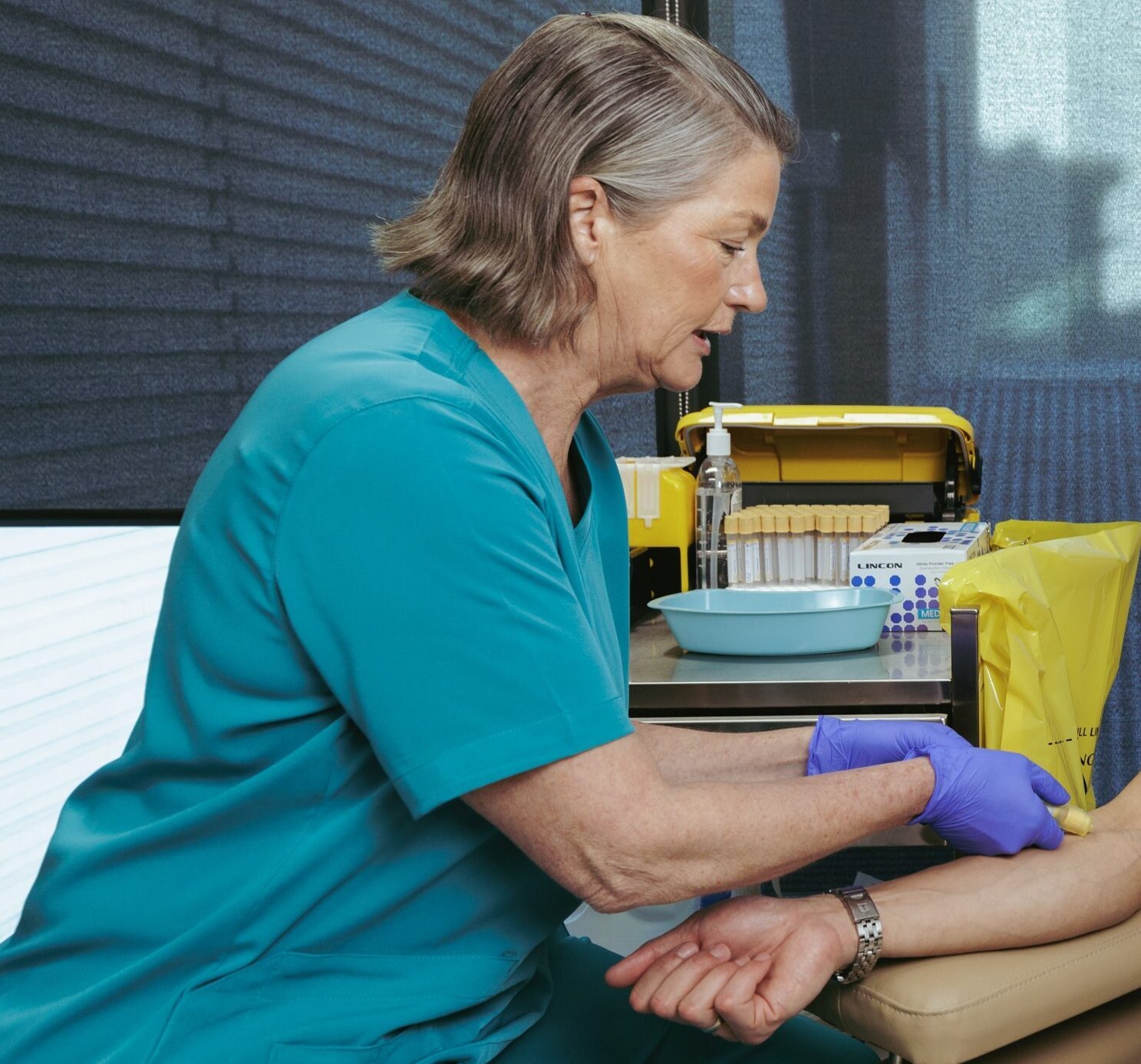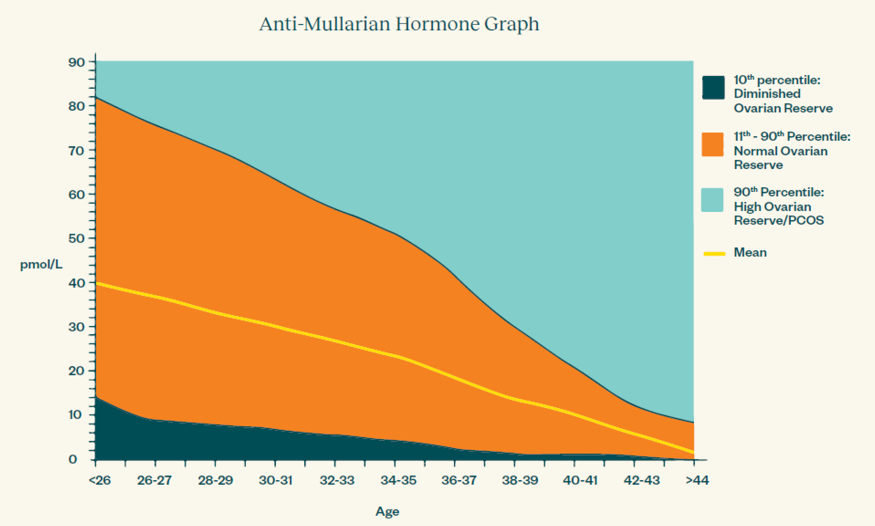Understanding the AMH Test & Help With Interpreting AMH Test Results
7 October 2024

7 October 2024

Anti-Müllerian Hormone (AMH) is a hormone produced by the early-stage egg follicles in a persons ovaries. AMH levels provide valuable insight into ovarian reserve, reflecting the number of eggs left. By comparing AMH levels with those of people in the same age group, fertility specialists can gain a clearer understanding of a patient’s fertility potential. Learn more about the AMH blood test.
The AMH test is a hormonal blood test that measures the level of Anti-Müllerian Hormone (AMH) in a persons blood. This hormone serves as a reliable indicator of ovarian reserve, and the test provides an estimate of the remaining egg count within the ovaries.
Once your AMH test is complete, your fertility specialist will discuss the results with you. These results help predict your response to fertility treatments, particularly IVF. For example, AMH levels can estimate how many eggs might be retrieved during an IVF cycle, aiding in treatment planning. Understanding the outcomes of an AMH test can help you make informed decisions regarding your fertility journey at Monash IVF.
The AMH test measures the quantity of eggs, not their quality. Combined with an ultrasound to assess the ovarian follicles, this test provides a reliable estimate of how many eggs are likely to develop during fertility treatment. It's essential to interpret AMH results alongside other factors like age, general health, and any underlying conditions that could affect fertility.
AMH levels typically remain consistent, offering a reliable measure of ovarian reserve. While minor fluctuations might occur month to month, these are usually insignificant and do not affect the overall interpretation of fertility potential.
To explore your fertility health, you can request a referral from your GP to a fertility specialist at Monash IVF. Your GP can organise the AMH test, which will provide critical insights into your ovarian reserve and fertility health. A fertility specialist will then explain the results and help determine the next steps based on your individual reproductive goals.
An AMH blood test is a useful tool for individuals seeking insights into their ovarian reserve for family planning. You may want to consider testing your AMH levels if:
At Monash IVF, AMH testing can be performed at any time during your menstrual cycle as AMH levels remain stable. However, we recommend discussing the timing with your specialist to ensure the most accurate and meaningful results.
Low AMH levels suggest a reduced ovarian reserve, meaning fewer remaining eggs. While this can indicate diminished fertility potential, it doesn’t necessarily mean pregnancy is impossible. It might, however, suggest that conception could take longer or that treatments like IVF may require more planning. If you have low AMH and are not ready to conceive, egg freezing may be a viable option to preserve future fertility.
AMH levels naturally decline with age, with the most notable drops occurring after age 35. This decrease reflects the gradual reduction of a person's egg count over time, impacting fertility as they age.
Several factors can influence AMH levels, including:
If your AMH levels are low, it’s essential to consult with a fertility specialist at Monash IVF. Low AMH doesn’t necessarily mean you can’t conceive naturally, but it could indicate that time is a critical factor. If you’ve been trying to conceive for six months without success, you may want to explore fertility treatments sooner. For those not ready to conceive, options like egg freezing may be worth considering to safeguard your fertility for the future.

Normal AMH levels range from 5.5 to 37.4 pmol/L, though these levels can vary depending on age and individual health factors.
An AMH level above 22 pmol/L could suggest the presence of PCOS, which may also increase the risk of ovarian hyperstimulation syndrome (OHSS) during fertility treatments. If you have high AMH levels, your fertility specialist will tailor a treatment plan to reduce any associated risks and ensure the best possible outcome.
AMH tests are generally reliable for assessing ovarian reserve, but factors like biotin supplementation can sometimes affect the results. At Monash IVF, we also use ultrasounds to complement the AMH test and provide a more comprehensive picture of your fertility potential.
AMH testing offers foresight into your fertility health, especially as the average age of first-time mothers continues to rise. Understanding your AMH levels can help you make proactive decisions about family planning, fertility preservation, or fertility treatments. Whether you’re considering having children now or in the future, knowing your AMH levels gives you more control over your reproductive journey.
At Monash IVF, we provide personalised care to help you understand your AMH levels and the role they play in your fertility. Keep in mind that AMH results are just one part of the larger fertility picture—other tests and factors are essential for a complete evaluation of your reproductive health. We recommend that you undertake a comprehensive Fertility Health Check to understand your fertility earlier rather than later, so you can give yourself a better chance to start a family when you’re ready.

Wherever you are on your journey, one of our supportive nurse enquiry team can help you understand your options and take the next step. These conversations are free and informative.